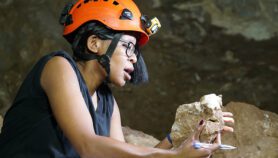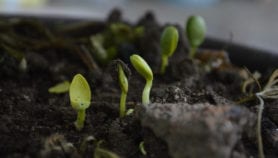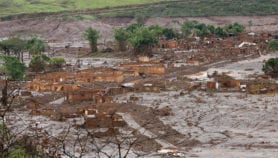By: Aisling Irwin
Send to a friend
The details you provide on this page will not be used to send unsolicited email, and will not be sold to a 3rd party. See privacy policy.
[LONDON] Thousands of international researchers from a host of disciplines gather in London, United Kingdom, today for what they say is an unprecedented attempt to refocus their work on solving planetary crises.
More than 2,500 researchers, ranging from earth scientists to psychologists, will join policymakers and representatives from the private sector at the Planet Under Pressure conference (26–29 March) to assess problems ranging from the collapse of fisheries to land grabs — and to pool their expertise to find ways forward.
The organisers say the meeting demonstrates a change in attitude among scientists, who are moving away from documenting what is happening to Earth towards providing and assessing solutions to pressing environmental and social problems.
"It’s the right conference at the right time," said Sybil Seitzinger, executive director of the Sweden-based International Geosphere–Biosphere Programme (IGBP).
This article is part of our Planet Under Pressure 2012 coverage — which takes place 26–29 March 2012. To read insights from our conference team please visit our blog.
The IGBP has jointly organised the conference with the International Human Dimensions Programme on Global Environmental Change (IHDP) in Germany, the Switzerland-based World Climate Research Programme (WCRP), and DIVERSITAS, the France-based international programme of biodiversity science.
"Scientists are blaming themselves for focusing on knowledge and assuming that others would act on it," said Ghassem Asrar, director of WCRP. "And as such, we have this impasse between decision makers and scientists."
The conference is expected to produce an outcome statement from scientists promising to focus on finding solutions to Earth’s problems.
"The whole of the research agenda for sustainability science for the next several years will be recast and the funding reorganised to take account of the discussions at this conference," Sander van der Leeuw, dean of Arizona State University’s School of Sustainability, said in a statement (21 March).
The meeting is regarded as a key event in the build-up to the UN Conference on Sustainable Development (Rio+20) to be held in Brazil (20–22 June).
And although critics have said the conference is too late to influence the Rio+20 negotiations, the organisers maintain that preparations for the meeting over the past 18 months have already influenced Rio+20 thinking.
For example, ideas contained in a series of policy briefs prepared for the meeting — on issues such as the need for regular assessments of the state of the planet — have found their way into documents officially submitted to the Rio+20 process, said Seitzinger.
A key principle behind the conference is that the quest for multidisciplinary approaches to problems must be strengthened.
"We talk about multidisciplinarity but most of the time research is driven by one particular discipline and the others tag along. We are saying we all have to be involved from the start," said Anantha Duraiappah, executive director of the IHDP. "This meeting is the first real example of this type of approach."
But attempts to increase multidisciplinarity at the conference have had mixed success, the organisers have admitted.
Attendance by social scientists will be "reasonable but not excellent", said Priya Shyamsundar, programme director for the South Asian Network for Development and Environmental Economics (SANDEE), based in Nepal, and a member of the scientific organising committee.
"We don’t have enough of the unconverted," agreed Duraiappah, adding that there is a need to encourage mainstream economists and philosophers, among others, to engage with scientists on global sustainability issues.
Another conference target that may be missed is the 40 per cent participation by developing countries.
Mark Stafford Smith, co-chair of the meeting and science director of the Climate Adaptation Flagship at the Commonwealth Scientific and Industrial Research Organisation (CSIRO), Australia’s national science agency, admitted earlier this month he was "not sure" whether this would be achieved.
There has also been debate about whether enough research funders, policymakers and business people will attend the conference.
But leaders in the scientific community say the meeting is already a success, simply by virtue of getting the various communities to organise a meeting of such size, variety and international reach.
See below for a video about the conference:
Link to live web streaming of the conference
For more news and analysis of the Planet Under Pressure 2012 conference click here, and also see our live blog.













